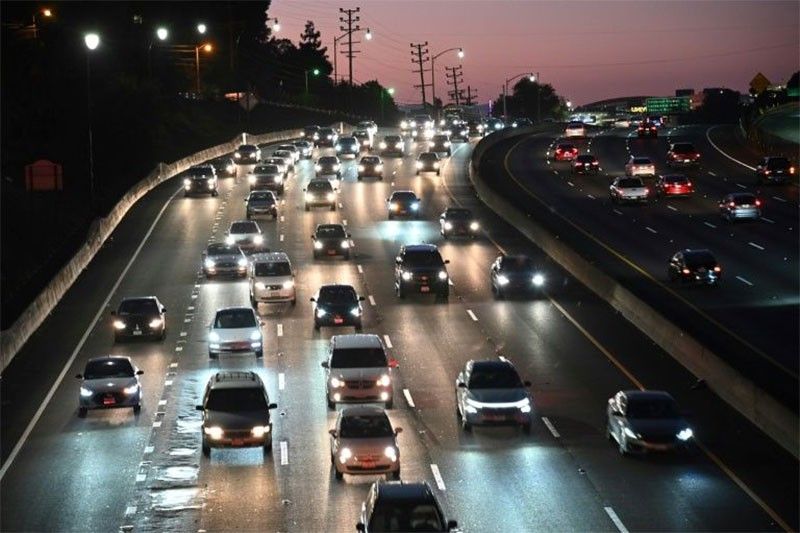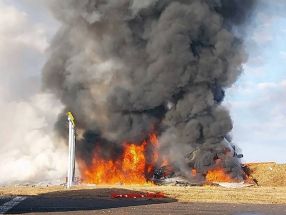Richest 1%'s emissions twice that of poorest 50%: analysis

PARIS, France — The richest one percent of people are responsible for more than twice as much carbon pollution as the poorest half of the world's population — 3.1 billion people — new research showed Monday.
Despite a sharp decrease in carbon emissions due to the pandemic, the world remains on pace to warm several degrees this century, threatening poor and developing nations with the full gamut of natural disasters and displacements.
An analysis led by Oxfam showed that between 1990 and 2015, when annual emissions ballooned 60 percent, that rich nations were responsible for depleting nearly a third of Earth's carbon budget.
The carbon budget is the limit of cumulative greenhouse gas emissions mankind may produce before rendering catastrophic temperature rises unavoidable.
Just 63 million people — the "one percent" — took up nine percent of the carbon budget since 1990, research conducted for Oxfam by the Stockholm Environment Institute found.
Highlighting an ever-widening "carbon inequality", the analysis said the growth rate of the one percent's emissions was three times that of the poorest half of humanity.
"It's not just that extreme economic inequality is divisive in our societies, it's not just that it slows the rate of poverty reduction," Tim Gore, head of policy, advocacy and research, told AFP.
"But there is also a third cost which is that it depletes the carbon budget solely for the purpose of the already affluent growing their consumption."
"And that of course has the worse impacts on the poorest and least responsible," Gore added.
The 2015 Paris climate deal commits nations to limit global temperature rise to "well below" two degrees Celsius above pre-industrial levels.
But emissions have continued to rise since then, and several analyses have warned that without a thoroughly re-tooled global economy prioritising green growth, the pollutions savings due to Covid-19 will have an insignificant mitigating impact on climate change.
With just 1C of warming so far, Earth is already battling more frequent and intense wildfires, droughts and super storms rendered more powerful by rising seas.
Gore said governments must put the twin challenges of climate change and inequality at the heart of any Covid-19 recovery plan.
"It's clear that the carbon intensive and highly unequal model of economic growth over the last 20-30 years has not benefited the poorest half of humanity," he said.
"It's a false dichotomy to suggest that we have to choose between economic growth and (fixing) the climate crisis."
Commenting on the Oxfam report, Hindou Oumarou Ibrahim, an environment activist and president of the Association for Indigenous Women and Peoples of Chad, said that climate change could not be tackled without prioritising economic equality.
"My indigenous peoples have long borne the brunt of environmental destruction," said Ibrahim.
"Now is the time to listen, to integrate our knowledge, and to prioritise saving nature to save ourselves."
At current levels of greenhouse gas emissions, Earth could warm by 1.5 degrees Celsius (2.7 degrees Fahrenheit) as early as 2030, the Intergovernmental Panel for Climate Change says in a landmark report.
"Global warming is likely to reach 1.5C between 2030 and 2052 if it continues to increase at the current rate," the report concluded with "high confidence."
Earth's surface has warmed one degree Celsius (1.8 degrees Fahrenheit)—enough to lift oceans and unleash a crescendo of deadly storms, floods and droughts—and is on track toward an unliveable 3C or 4C rise.
Japan issued heatstroke alerts Sunday to tens of millions of people as near-record high temperatures scorched swathes of the country, while torrential rain pummelled other regions.
National broadcaster NHK warned viewers that the heat was at life-threatening levels, as temperatures soared to nearly 40 degrees Celsius (104 degrees Fahrenheit) in some places, including the capital Tokyo.
"Please stay hydrated and use air conditioners appropriately, and refrain from outings that seem difficult," a news presenter said. — AFP
Developing countries voice "disappointment" as climate talks in Germany ended Thursday with frustrations flaring over a lack of momentum on helping vulnerable nations cope with the impacts of warming.
With world attention drawn towards other challenges, notably Russia's invasion of Ukraine and spiralling food, energy and economic crises, the technical discussions meant to lay the groundwork for key United Nations negotiations later this year were mired in disagreements.
Representatives of nearly 200 countries arrived in the city of Bonn buoyed by the ambition displayed six months ago during the UN COP26 negotiations in Glasgow, where countries rallied around the urgent threat of climate change.
"After that sense of emergency had been established, probably the expectations were very high," says Preety Bhandari, senior climate adviser at the World Resources Institute. — AFP
Negotiators from almost 200 countries will meet in Bonn Monday for climate talks tasked with reigniting momentum on tackling global warming, as Russia's invasion of Ukraine overshadows the threat from rising emissions.
The conference will set the stage for a fresh round of major United Nations talks later this year in Egypt.
It will also be a chance to test the resolve of nations facing a catalogue of crises, including escalating climate impacts, geopolitical tensions, bloodshed in Ukraine and the threat of a devastating global food crisis.
"Climate change is not an agenda we can afford to push back on our global schedule," said outgoing UN climate change chief Patricia Espinosa ahead of the meeting. — AFP
Nations in the G20 group of major economies have yet to strengthen greenhouse gas reduction goals despite agreeing to revisit their plans ahead of critical UN climate talks in November, according to an analysis by leading research NGOs seen exclusively by AFP.
At the Glasgow COP26 climate summit last year countries pledged to review inadequate plans for cutting carbon pollution this decade ahead of the COP27 conference.
Two G20 nations — India and Turkey — have failed to update their original carbon cutting plans submitted in 2015, as required under the Paris Agreement.
Neither has non-G20 member Egypt, which will host the COP27 climate summit in November. — AFP
Four key climate change indicators all set new record highs in 2021, the United Nations said Wednesday, warning that the global energy system was driving humanity towards catastrophe.
Greenhouse gas concentrations, sea level rise, ocean heat and ocean acidification all set new records last year, the UN's World Meteorological Organization (WMO) said in its "State of the Global Climate in 2021" report.
"The global energy system is broken and bringing us ever closer to climate catastrophe," UN Secretary-General Antonio Guterres said of the findings. — AFP
- Latest
- Trending

































